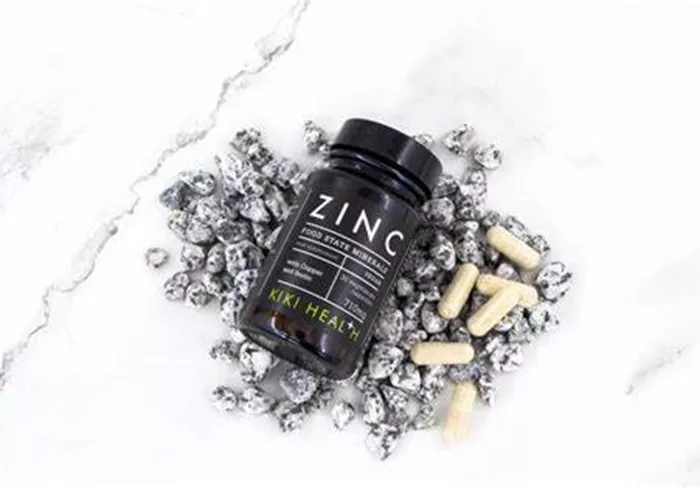Zinc is an essential mineral that plays a vital role in various bodily functions, making it a key player in maintaining health and well-being. This article explores the numerous benefits of zinc vitamins, their sources, the consequences of deficiency, and the recommended dietary allowances. By understanding the significance of zinc, individuals can make informed decisions about their nutrition and supplementation needs.
Zinc
Zinc is a trace mineral, meaning that the body requires it in small amounts for optimal functioning. It is involved in numerous biological processes, including enzyme activity, protein synthesis, DNA synthesis, and cell division. Zinc is also crucial for maintaining a healthy immune system, wound healing, and proper sense of taste and smell. Despite its importance, many people do not consume adequate amounts of zinc through their diet, which can lead to deficiency and associated health issues.
The Role of Zinc in the Body
Zinc is found in every cell of the body and is essential for various physiological functions. Its key roles include:
1. Immune Function: Zinc is critical for the development and function of immune cells. It helps in the production of T-cells, which are essential for adaptive immunity. Adequate zinc levels can reduce the risk of infections and enhance the body’s ability to fight off pathogens.
2. Wound Healing: Zinc plays a significant role in the wound healing process. It aids in cell division and protein synthesis, both of which are necessary for tissue repair. Zinc also has anti-inflammatory properties that help reduce swelling and promote healing.
3. Protein Synthesis and Cell Division: Zinc is necessary for the synthesis of proteins and DNA. It serves as a cofactor for over 300 enzymes that facilitate biochemical reactions, including those involved in metabolism, digestion, and nerve function.
4. Taste and Smell: A deficiency in zinc can lead to a diminished sense of taste and smell. Zinc is involved in the proper functioning of taste buds, and adequate levels are required for the detection of flavors.
5. Hormonal Regulation: Zinc influences hormone production and regulation. It plays a role in the synthesis of insulin, testosterone, and thyroid hormones, contributing to metabolic processes and reproductive health.
6. Antioxidant Properties: Zinc acts as an antioxidant, helping to protect cells from oxidative stress caused by free radicals. This protective effect can reduce the risk of chronic diseases, including cancer and heart disease.
Health Benefits of Zinc Vitamins
The health benefits of zinc vitamins are vast and diverse. Here are some key advantages associated with adequate zinc intake:
1. Boosts Immune Health: Zinc supplements can enhance immune response, particularly during cold and flu season. Studies suggest that zinc may reduce the duration and severity of respiratory infections.
2. Supports Skin Health: Zinc is commonly used in dermatological treatments due to its ability to promote skin healing and reduce inflammation. It is effective in treating acne, eczema, and other skin conditions.
3. Enhances Cognitive Function: Zinc plays a role in brain health, influencing neurotransmission and cognitive processes. Adequate zinc levels have been associated with improved memory and learning.
4. Improves Mood and Reduces Anxiety: Some studies suggest a link between zinc levels and mental health. Adequate zinc intake may help alleviate symptoms of depression and anxiety, contributing to overall emotional well-being.
5. Promotes Healthy Growth and Development: Zinc is essential for growth and development during childhood, adolescence, and pregnancy. It supports proper cellular division and helps prevent growth delays.
6. Reduces Risk of Chronic Diseases: Regular intake of zinc may lower the risk of chronic diseases such as heart disease and diabetes. Its antioxidant properties contribute to reducing inflammation and oxidative stress, key factors in these conditions.
7. Supports Male Reproductive Health: Zinc is vital for male fertility, playing a role in testosterone production and sperm health. Adequate zinc levels can improve sperm quality and motility.
Sources of Zinc
To meet the recommended daily intake of zinc, it’s essential to include zinc-rich foods in your diet. Natural sources of zinc include:
1. Meat: Red meat, poultry, and seafood are excellent sources of zinc. Oysters, in particular, are one of the richest sources, containing significantly higher levels than other foods.
2. Dairy Products: Milk, cheese, and yogurt provide zinc and are easily absorbed by the body.
3. Legumes: Beans, lentils, and chickpeas are good plant-based sources of zinc. However, they also contain phytates, which can inhibit zinc absorption.
4. Nuts and Seeds: Pumpkin seeds, sesame seeds, and cashews are great sources of zinc and provide healthy fats and protein.
5. Whole Grains: Whole grains like quinoa, brown rice, and oats contain zinc, though the presence of phytates can affect absorption.
6. Fortified Foods: Many breakfast cereals and snack bars are fortified with zinc, making them a convenient source for those at risk of deficiency.
Zinc Deficiency
Zinc deficiency can have a significant impact on health. Symptoms of deficiency may include:
1. Weak Immune Response: Individuals with low zinc levels may experience frequent infections and a longer recovery time from illnesses.
2. Delayed Wound Healing: A deficiency can slow down the body’s ability to heal wounds and recover from injuries.
3. Hair Loss: Zinc plays a role in maintaining healthy hair follicles. Deficiency can lead to hair thinning or loss.
4. Skin Problems: Dry skin, rashes, and acne can result from inadequate zinc levels.
5. Impaired Taste and Smell: A decrease in taste sensitivity and smell is often reported by individuals with zinc deficiency.
6. Cognitive Decline: Insufficient zinc may lead to difficulties with memory and concentration.
7. Reproductive Issues: In men, low zinc levels can contribute to infertility and decreased testosterone production.
Recommended Dietary Allowance (RDA) for Zinc
The recommended dietary allowance for zinc varies by age, sex, and life stage. The general guidelines are as follows:
- Infants (0-6 months): 2 mg/day
- Children (1-3 years): 3 mg/day
- Children (4-8 years): 5 mg/day
- Children (9-13 years): 8 mg/day
- Teen boys (14-18 years): 11 mg/day
- Teen girls (14-18 years): 9 mg/day
- Adult men: 11 mg/day
- Adult women: 8 mg/day
- Pregnant women: 11 mg/day
- Lactating women: 12 mg/day
Zinc Supplements
For those who struggle to meet their zinc needs through diet alone, supplements can be a beneficial option. Various forms of zinc supplements are available, including:
1. Zinc Gluconate: Commonly used in lozenges and cold remedies, this form is well-absorbed and gentle on the stomach.
2. Zinc Citrate: This form is also easily absorbed and may be less likely to cause gastrointestinal upset.
3. Zinc Picolinate: Known for its high absorption rate, this form is often recommended for individuals with digestive issues.
4. Zinc Acetate: This form is often used in cold medications due to its effectiveness in reducing the duration of cold symptoms.
5. Zinc Orotate: This type is thought to be highly bioavailable, meaning it is easily utilized by the body.
See Also: What Vitamins Can I Take to Help Lose Weight?
How to Take Zinc Supplements
When taking zinc supplements, consider the following tips:
1. Timing: Zinc is best absorbed on an empty stomach, but it can cause gastrointestinal discomfort for some. If this occurs, consider taking it with a meal.
2. Dosage: Follow the recommended dosage on the supplement label or as advised by a healthcare professional. Excessive zinc intake can lead to toxicity and adverse effects.
3. Interactions: Zinc can interact with certain medications, including antibiotics and diuretics. Consult a healthcare provider if you are taking medications.
4. Balance with Other Nutrients: Zinc works synergistically with other nutrients, particularly copper. It’s important to maintain a balanced intake to avoid deficiencies in other essential minerals.
Potential Risks of Zinc Overdose
While zinc is essential for health, excessive intake can lead to toxicity. Symptoms of zinc overdose may include:
1. Nausea and Vomiting: High doses can irritate the stomach lining, leading to gastrointestinal distress.
2. Diarrhea: Excessive zinc can disrupt gut function and result in diarrhea.
3. Headaches: Overdosing on zinc may trigger headaches and dizziness.
4. Impairment of Immune Function: Ironically, too much zinc can weaken the immune system, making individuals more susceptible to infections.
5. Copper Deficiency: Excessive zinc intake can interfere with copper absorption, leading to a deficiency over time.
Conclusion
Zinc is a vital mineral with a wide range of health benefits, playing essential roles in immune function, wound healing, protein synthesis, and much more. By incorporating zinc-rich foods into your diet or considering supplementation when necessary, you can support your overall health and well-being. As always, it’s essential to consult with a healthcare professional before making significant changes to your diet or beginning any supplementation to ensure you meet your individual needs. By understanding the importance of zinc, you can take proactive steps to enhance your health and maintain optimal bodily functions.
Related Topics
7 Essential Vitamins to Strengthen Your Immune System This Cold and Flu Season

































